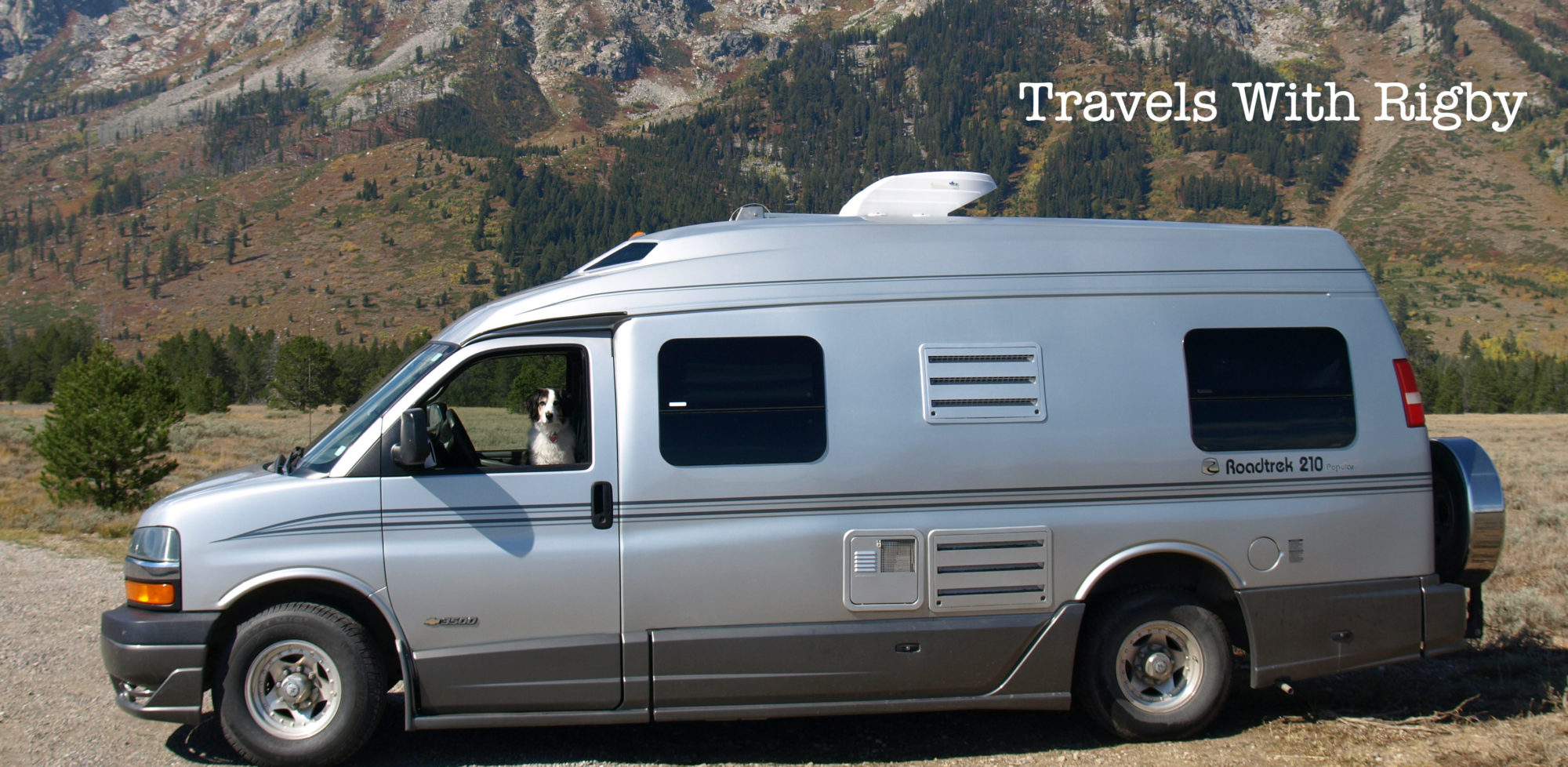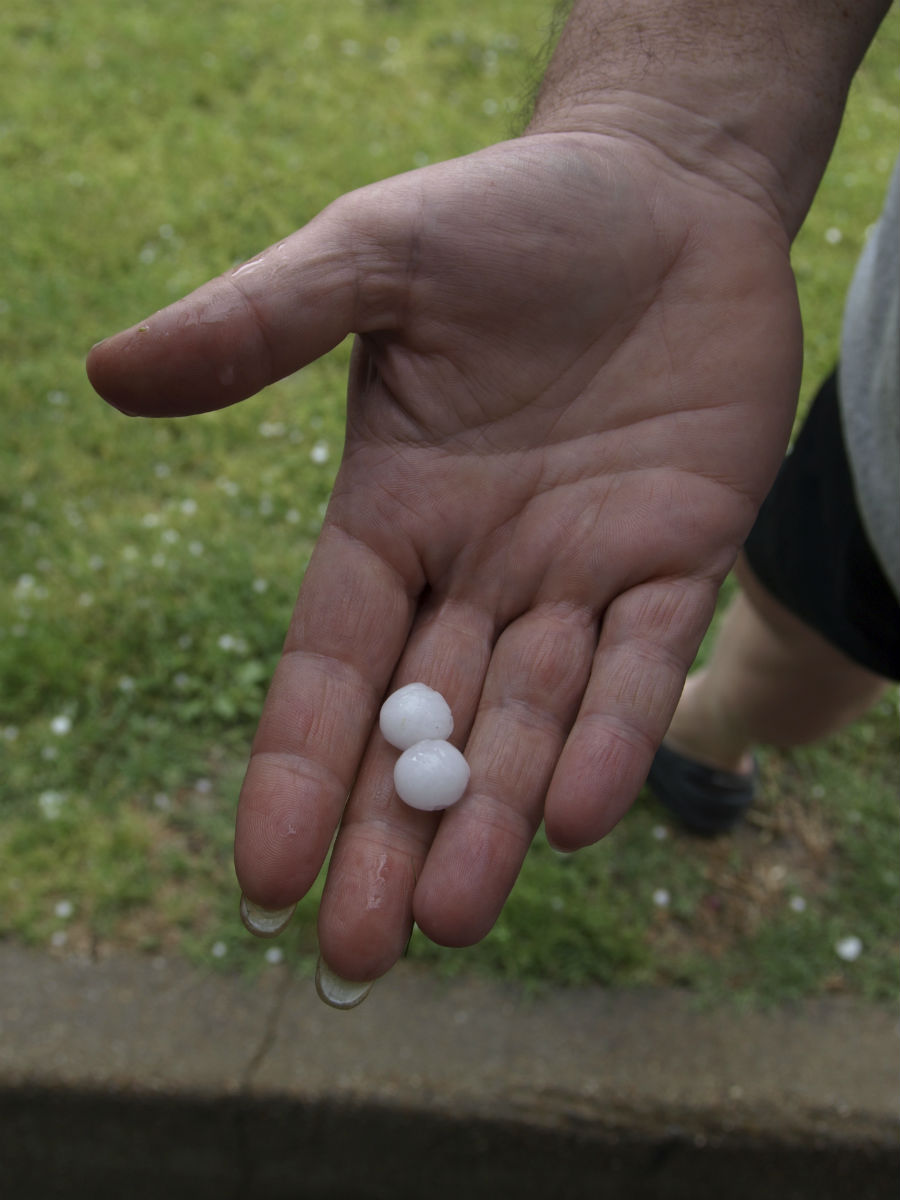Making a commitment to travelling in a smaller RV comes with its own challenges. Think small. Think simple. With the right mindset and a little preparation, you’ll find it’s a breeze.
ECO-ENERGY CONSUMPTION
Investigate solar panels, to create your own mobile power supply. Better yet, think about the ways you use/need energy and make an effort to reduce demand. We find we can go several days on our leisure battery without losing lights at night, laptop operation or energy to our water pump. Mind you, we don’t run toasters, coffee makers or other energy-hogging devices. If you are smart about it, the leisure battery can take you a long way. It recharges while we drive, which makes travel days a snap. We haven’t run out of juice yet.
LOSE THE CLUTTER
No matter how little room you have at home, we can guarantee there will a lot less space to store, stack and squirrel away items onboard a Class B RV. The trick is to separate “need” from “want” and focus on the “need” items first and foremost. After the essentials are taken care of, assess the storage space left before adding more items. You’ll likely find that you can live quite comfortably with much less than you think. By the time you get back home you’ll wonder why in the world you have all that other “stuff” filling your house.
KEEP YOUR RV SPACE TIDY
If you and your significant other have a difference in how clean and tidy things are around the house, before you depart on an RV vacation is the best time to settle. Leave it until you’re on the road, and things could get “complicated” (think: nasty). Be clear about expectations, set the ground rules and do your best to follow them. Besides, messy in a large space (like a house) is a whole different creature than messy in 120 square feet.
FOOD SAFETY
Make sure your fridge is operating at a safe temperature. Don’t stock up too much on perishable items like meat, cheese and eggs (food tip: “liquid” eggs in a carton make omelettes that are just as good as the more fragile ones in the shell). Buy as you go is the best strategy. Have a supply of vacuum plastic bags and hard-sided tubs to pop things into the fridge and freezer.
LEARN SOME BASIC MAINTENANCE SKILLS
Things break down. It helps to keep a supply of smaller items (fuses and tools, anyone?) so you can repair things enough to limp into the mechanic.
HANDLING THE DOLLARS & CENTS
Set up a system to pay your bill online. We’re not fans of automatic payment plans (we like to see the bills long beforehand and make sure there are no errors in charges). Others find the auto payment system works well. Others still, arrange for someone back home to collect and pay the bills on time. Find a system that works for you. What not to do: ignore the bills, leave them in a pile waiting back home, cross your fingers and hope for the best!
HAVE A BACK-UP PLAN
Breakdowns happen. Bad weather happens. Bookmark the websites for Environment Canada, the National Hurricane Center and your favourite online weather websites. Learn the seasons for bad weather (June through November for hurricanes along the Atlantic and Gulf coastlines; April through May for tornados through the Midwest). Check before heading out on a long drive. We know of what we speak: we rode out a tornado in Kentucky and it is not an experience we’d care to repeat!


We have just started our search for a good used Roadtrek. Your camper van inspection list is a big help. Thank you.
Our pleasure! Please feel free to make any suggestions about ideas to improve the list and we will make changes to other readers can benefit. Good luck with your search – it takes time and research but with patience you’ll probably find a camper van that is just the right fit. And once you’re on the road, it is easy to become quickly addicted to the lifestyle! Keep us posted on how you do.